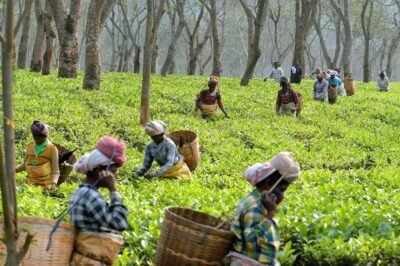Assam tea is renowned worldwide for its rich flavor, robust aroma, and cultural significance. As one of the largest tea-producing regions in the world, Assam’s tea industry plays a pivotal role in the state’s economy and forms an integral part of its cultural identity. With sprawling tea gardens, historical significance, and a growing interest in Assam tea tourism, this humble beverage has shaped both the economic and cultural landscape of the region.
Economic Importance of Assam Tea Industry
The Assam tea industry is a major contributor to the state’s economy, providing livelihoods to millions of people, particularly in rural areas. Assam is home to some of the world’s oldest and largest tea plantations, which collectively produce over half of India’s tea and about one-sixth of the global supply. This immense production helps sustain a network of tea workers, traders, and exporters, making it a vital economic driver for Assam.
Most of the tea plantations in Assam are spread across the Brahmaputra Valley, where the region’s climate—hot and humid with heavy rainfall—provides ideal conditions for tea cultivation. The production of Assam tea is labor-intensive, and tea estates employ large numbers of workers, many of whom are women. The economic well-being of these workers and their families is closely tied to the success of the tea industry, making it a crucial part of Assam’s socio-economic fabric.
Cultural Importance of Tea in Assam
Beyond its economic value, Assam tea holds deep cultural significance. Tea is not just a drink in Assam; it is a symbol of hospitality and community. Tea drinking is a daily ritual in Assamese households, and offering tea to guests is a mark of warmth and respect. Over the centuries, tea has become embedded in the local culture, and today it serves as a point of pride for the Assamese people.
The cultural significance of tea also extends to various festivals and traditional gatherings. During the harvest season, festivals such as the Tea Festival of Assam celebrate the state’s rich tea heritage, highlighting the cultural importance of tea and its contribution to Assam’s identity.
Tea Tourism and Its Growing Popularity
With growing interest in experiential travel, Assam tea tourism is becoming increasingly popular. Visitors from across India and the world are drawn to the picturesque tea plantations of Assam, eager to experience the process of tea-making firsthand. Many tea estates now offer guided tours, where visitors can observe the journey of Assam tea from leaf to cup, enjoy tea-tasting sessions, and learn about the history of tea cultivation in the region.
Tourism surrounding the tea industry is not only boosting local economies but also raising awareness of Assam’s rich tea heritage. This fusion of culture, history, and natural beauty makes tea plantations in Assam an attractive destination for tourists, helping to promote the state’s unique identity.
Conclusion: A Blend of Economy and Culture
Assam tea is more than just a global commodity; it is the lifeblood of Assam’s economy and a key part of its cultural identity. The Assam tea industry not only supports the livelihoods of millions but also preserves the state’s unique traditions and heritage. As Assam tea tourism continues to grow, it offers a window into the world of tea cultivation while contributing to the broader development of the region. The role of tea in Assam is a perfect blend of economic significance and cultural pride.








Leave a Reply